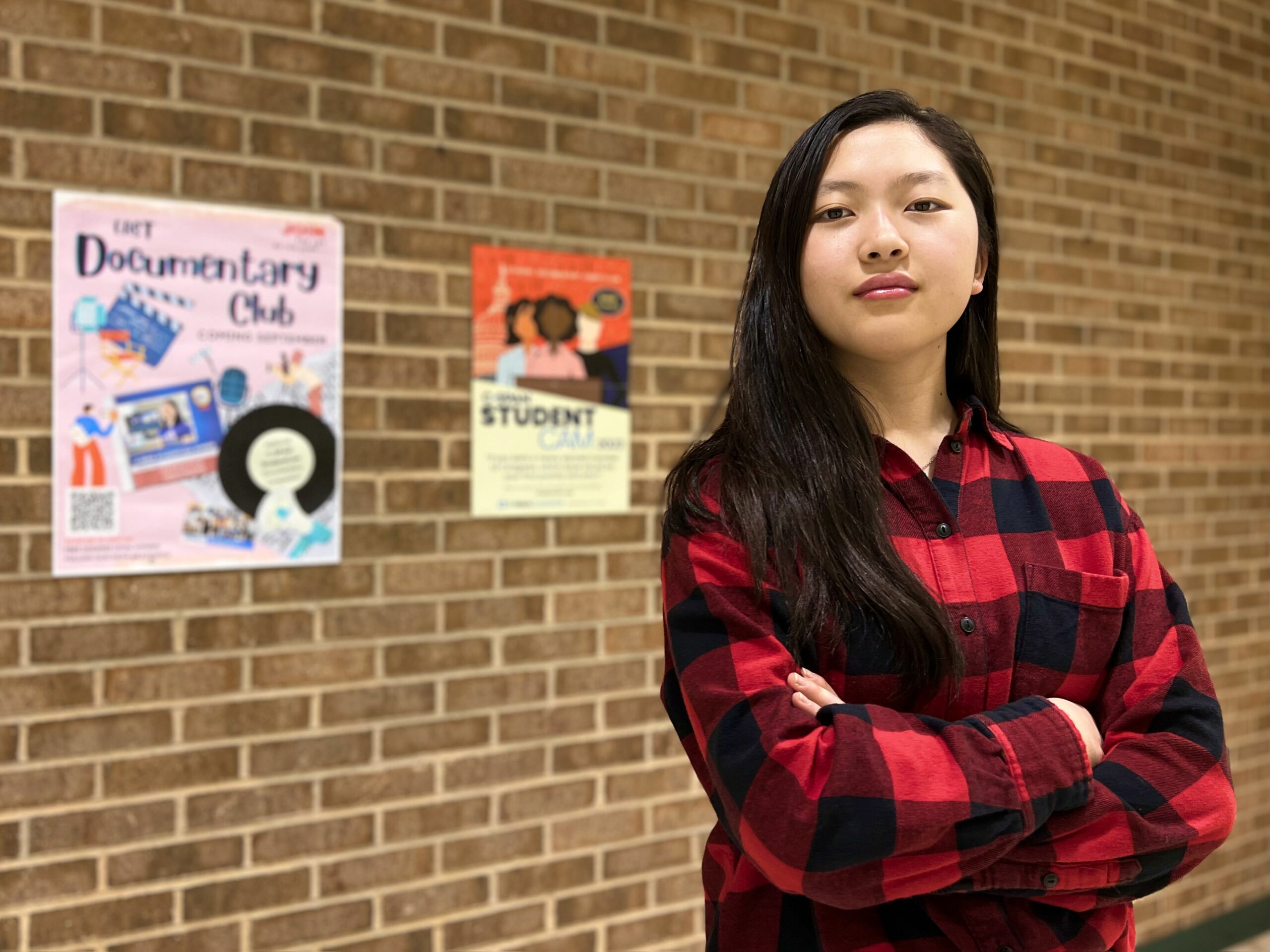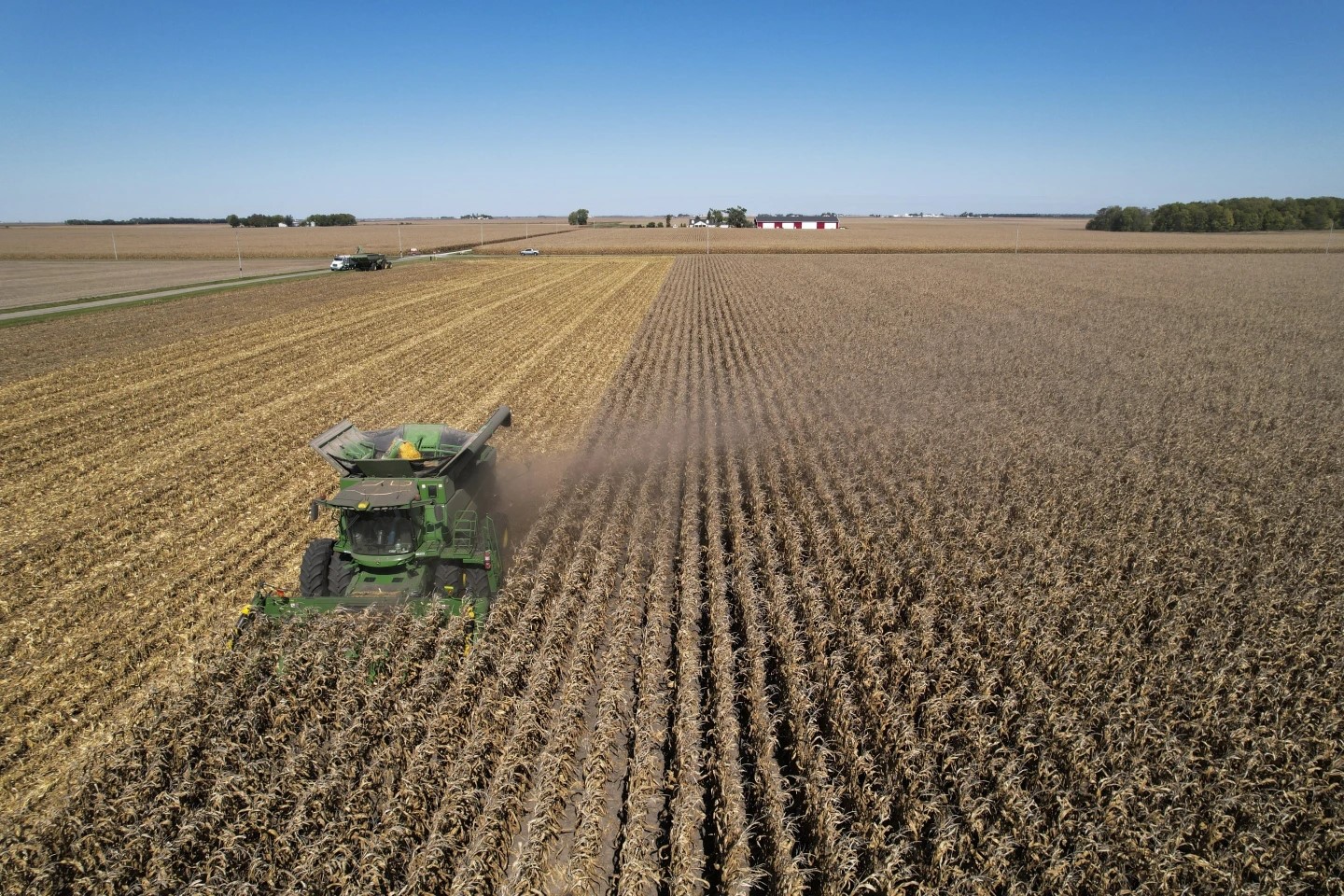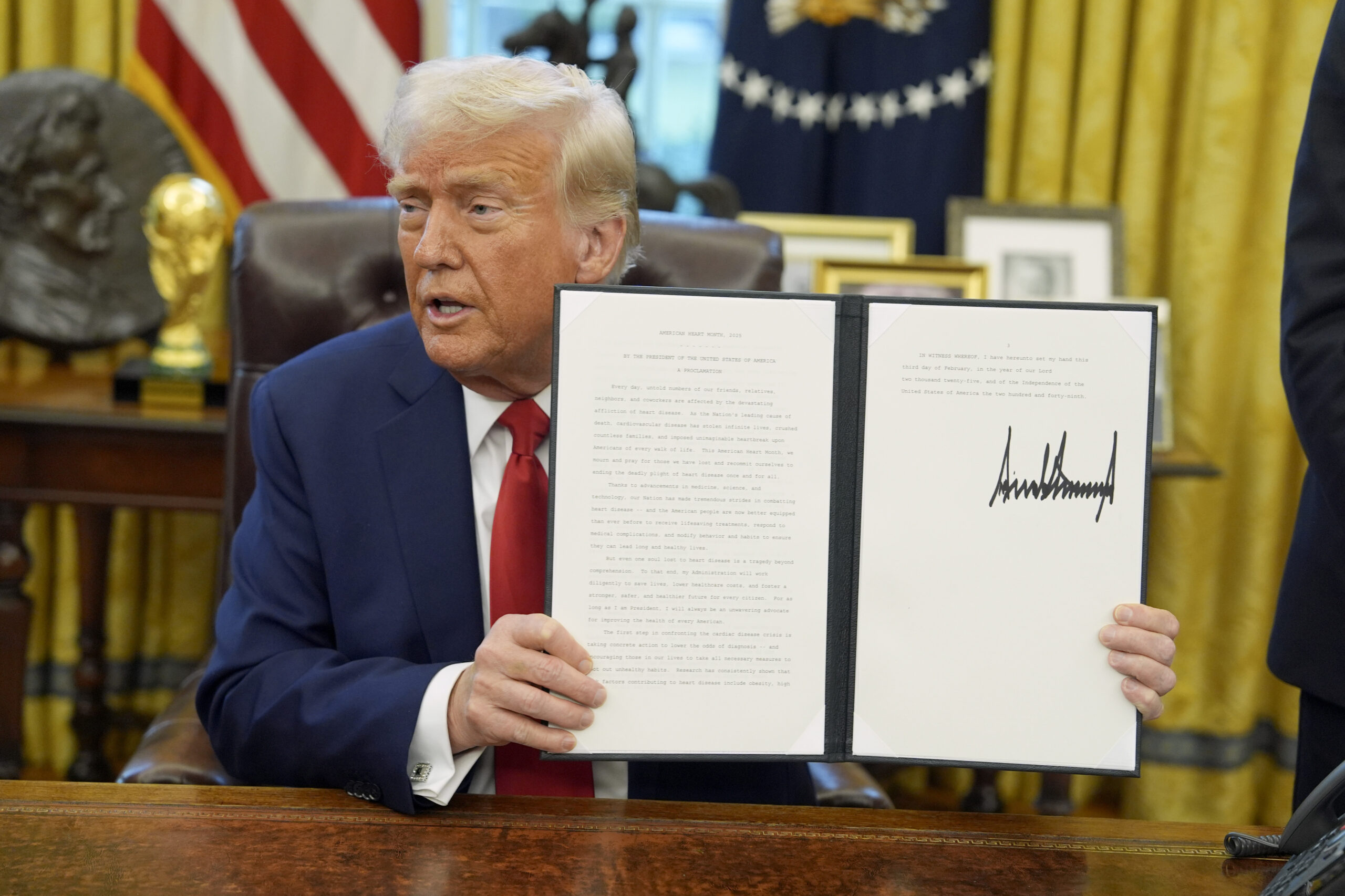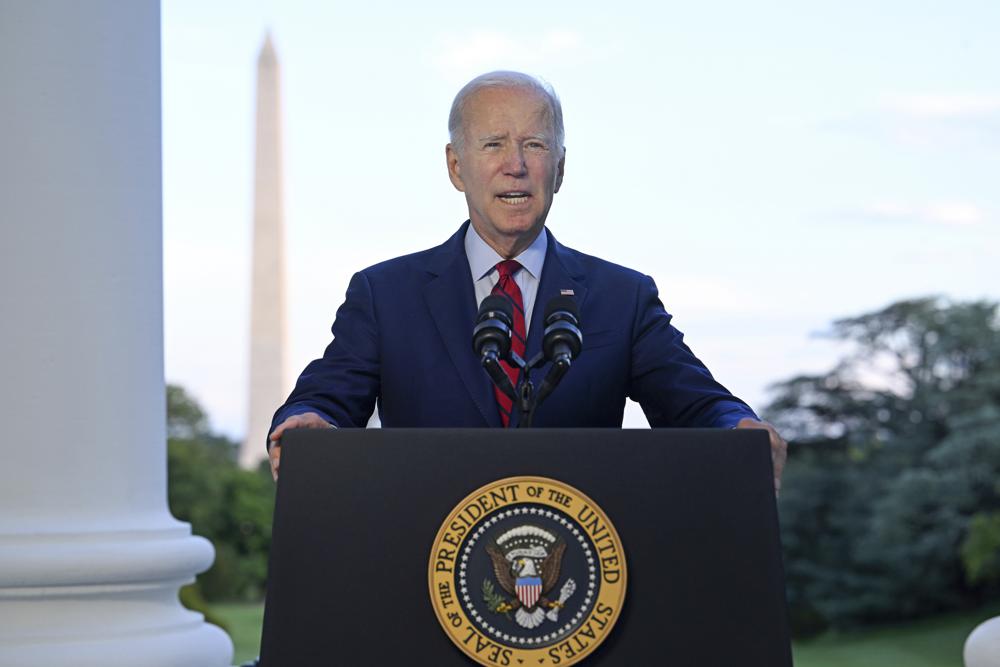East Chapel Hill High School student Teresa Fang has participated in the C-SPAN Student Cam documentary competition for four years and previously earned national recognition for her projects. This year, however, she earned first place in her division — one of just three high school winners.
Fang created a brief documentary titled “MONEY TALKS: Inside the Inflation Surge,” which discussed why and how inflation happens in the economy and reflected how some in Chapel Hill are feeling its effects. The project was chosen from 1,500 entries across dozens of states and will be aired on C-SPAN. “MONEY TALKS” will play nationwide at 6:50 EST and throughout the day on Tuesday, April 18.
Fang stopped by 97.9 The Hill and spoke with show host Andrew Stuckey about her win, her passion for the Student Cam competition, and her process of putting together a documentary on a difficult topic. Below is a transcript of their conversation, which is lightly edited for clarity.
Click here to listen back to Fang’s full interview.
Andrew Stuckey: When you visited us last at the end of the summer, you were talking about wanting to form a club and put a documentary out there. And here we are talking about you winning a documentary contest. So, let’s fill in the blanks. What has that aspect of the year been like as you were kind of planning out this documentary project and then making it happen?
Teresa Fang: Well it’s very hard to, actually. One of the main obstacles of doing competition like this, especially a documentary competition, is to figure out a topic that you think will actually win, that you think will be relevant and will touch the hearts of a lot of people who watch.
Luckily — well, not luckily — we had the pandemic and after we got out of the pandemic, there was inflation. This was a big issue because it hit home for a lot of us, especially families. As we can see like in our gas stations, the prices are coming down now but they were astronomically high before. Whenever we go get groceries, we see the food maybe has tripled or doubled in price. Those are the really obvious signs of inflation that we see around in our daily lives… and I just decided to tackle that.
Stuckey: Once you decided to tackle inflation, what was the method? I’ll be honest, inflation doesn’t sound like a very exciting topic, so how do you liven that up? What was your approach?
Fang: There’s a lot of young people who don’t understand inflation or anything about economics in particular. It’s very hard to get young people to get politically active, especially in local government. But I do think that getting active is the first step to really becoming more knowledgeable about what we’re doing in our government. Every single small thing that the [federal] government does, it affects tens of hundreds of thousands of millions of people all around the nation. And that includes young people like us. So, we should definitely know what is going on around our country and our community.
I chose this topic and then I went to our local government first. I interviewed the owner of Flyleaf Books, Mrs. Jamie Fiocco, and then the Chapel Hill Planning Commission chair John Mitchell. I’m actually the youth liaison to the planning commission from the Chapel Hill Youth Council, so he was very helpful in explaining what was going on locally. I also interviewed a Duke professor who gave me the behind-the-scenes [perspective] of what’s really going on. I really owe it to them for showing me how inflation really worked. I’m not an expert, I don’t think any other high schoolers [are] an expert. So, one of my goals by doing this documentary was to really inform young people in a way that they can understand.
Whenever I start on a documentary, there’s always a three-step process. The first step is introducing the problem, and then explaining the problem, and then figuring out potential solutions. From an inflation kind of standpoint, there’s really three types of levels you can talk about. First, you have local, state, and federal [governments], and that was what I was hoping to accomplish by interviewing three different people [with ties to] these levels.
Stuckey: So, you got all this interview content, you had the footage… what happens next?
Fang: The hardest part comes next, I would say. It’s putting together all of these interviews, because you have to search through the entire interview and figure out which parts you really need. That’s the part that is really time consuming. Maybe you could have done a plan beforehand, you can just get the right parts, get the right timestamps from the interviews, and put them together. That’s really the hard part, [it] took me maybe like a few weeks.
Stuckey: So what was it like when you actually got the news [that you won]?
Fang: I was really happy — first place is a big deal and I was really glad to finally attain this. [I] finally get some glory back to Chapel Hill, to my school, to all of my previous teachers. And I’m thankful for everyone who has helped me.
Stuckey: This is an easy question to answer after the fact, but how proud are you of this work? Let’s say you hadn’t won, how would you feel about this documentary if you hadn’t won?
Fang: If I hadn’t won, I’d feel very sad. Maybe I would cry, but [I stand by the work.] I always feel very confident about my work. I only submit my work when I feel very confident about it. So, of course when I submitted it, I thought I was gonna win. My motto is always, ‘look forward and whatever happens back then, that’s the past. You can do better.’
Stuckey: Love the confidence there and of course you did win! So, what happens next? What does that [win] actually mean?
Fang: When you win first place, you’ll get $3,000 for yourself and $500 for the school. And I believe [the school’s prize money] be used for maybe social studies [classes], because that’s what the competition really tackles: it’s a social issues competition for students. So, maybe the school will use it.
I’m hoping that this what my win this year will encourage other high schoolers — not only at my school but maybe in our whole district — to really do more and to participate in this competition. It really opens your eyes to social issues, especially in our community, and I think that’s what high schoolers really need right now.
Stuckey: I noticed that there were some middle schoolers that also placed and got honorable mentions from the school district. Did you have any interaction with them while they were working on their films?
Fang: I didn’t have any interaction with them, but because they were from the same middle school that I went to, [I believe] they were under the tutelage of my teacher, [Smith Middle School’s Erin Kellas]. Ms. Kellas was the one who introduced me to the competition first four years ago, she was also the one who introduced the competition to them. I think it’s like a school-wide tradition kind of almost at this point. She told me she has showed my documentaries to the middle schoolers a lot.
I do want to mention: I want to thank all of the people who accepted my interviews, they’ve been very helpful to me. I wanted to thank the Planning Commission people. They’ve always been very kind in helping me participate and telling me what’s going on. So that’s that’s partially why I am so involved with our local community, I think. And I hope to continue doing this [competition] — I will definitely keep my documentary club at school going and hope for the best.
Watch “MONEY TALKS: Inside the Inflation Surge” here.
Chapelboro.com does not charge subscription fees, and you can directly support our efforts in local journalism here. Want more of what you see on Chapelboro? Let us bring free local news and community information to you by signing up for our biweekly newsletter.











